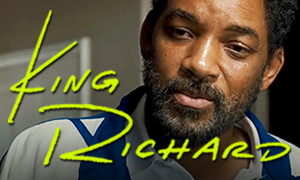Next Goal Wins vs. the True Story of the American Samoa Soccer Team
Michael Fassbender
Born: April 2, 1977
Birthplace:
Heidelberg, Baden-Württemberg, West Germany
Coach Thomas Rongen
Born: October 31, 1956
Birthplace: Amsterdam, Netherlands
Elisabeth Moss
Born: July 24, 1982
Birthplace:
Los Angeles, California, USA
Gail Megaloudis Rongen
Born: October 22, 1951
Bio: Thomas Rongen's Wife
Photo: Instagram
Kaitlyn Dever
Born: December 21, 1996
Birthplace:
Phoenix, Arizona, USA
Nicole Megaloudis
Born: October 12, 1984
Birthplace: Henderson, Nevada, USA
Death: February 9, 2004, Goochland, Virginia, USA (car accident)
Bio: Stepdaughter of Thomas Rongen
Kaimana
Birthplace:
American Samoa
Jaiyah Saelua
Born: July 19, 1988
Birthplace: Leone, American Samoa
Position: Center Back for American Samoa National Team
Uli Latukefu
Born: August 2, 1983
Birthplace:
Australia
Nicky Salapu
Born: November 13, 1980
Birthplace: Pago Pago, American Samoa
Position: Goalkeeper for American Samoa National Team
Oscar Kightley
Born: September 14, 1969
Birthplace:
Apia, Samoa
Tavita Taumua
Birthplace: American Samoa
Bio: Manager of the American Samoa Team
Is Next Goal Wins based on the documentary?
Yes. The movie, which is directed by Taika Waititi (Thor: Ragnarok, Jojo Rabbit), was inspired by Mike Brett and Steve Jamison's 2014 British documentary of the same name. However, as we'll detail in the following questions, plenty of fiction has been injected into the story. The documentary can be viewed through the link below.
Did the American Samoa soccer team lose 31-0?
Yes. A Next Goal Wins fact-check reveals that the team suffered the excruciating 31-0 loss in a match in April 2001. They were playing Australia in the first qualifying round for the 2002 FIFA World Cup. Unfortunately, the team became well-known for the painful defeat, as it set the record for the worst loss and largest margin of victory in an international match.
In real life, it would be another ten years before the formidable player-turned-coach Thomas Rongen would arrive to help them shed their reputation of being an "infamously terrible" team. "I knew I ran into a team that's the worst team in the world, ranked last in FIFA," Rongen told CBS Sports Golazo. "I knew they had the dubious, unfortunate [reputation] that they lost 31 to nothing in a World Cup qualifying game against Australia, which was the worst defeat in the history of soccer." It's worth noting that it wasn't just American Samoa that Australia pulverized in April 2001. Two days prior to playing American Samoa, Australia defeated Tonga 22-0.
Is it true that the American Samoa team had never scored a goal prior to Coach Rongen arriving?
In the film, Oscar Kightley's character, Tavita, remarks, "We haven't scored one goal in the history of our country trying to have a soccer team." This appears to be slightly inaccurate. In an interview with HeyUGuys, Rongen commented, "[They] had not won in ten years, a decade. They had scored only two goals and given up 292 against, so, for them to continue to play against all odds, they must really truly love the game, which they did."
Had Thomas Rongen been fired from his previous coaching job because he lost his temper?
No. We're told in the movie, Rongen "has been fired from his last three jobs because he can't control himself." However, the Next Goal Wins true story reveals that the film attributing Rongen being fired to routine violent outbursts and a difficult personality is fiction. In real life, the United States Soccer Federation fired Rongen in May 2011 from his position as coach of the United States Under-20 team for failing to guide the team into the World Cup. It ended the team's streak of qualifying for the tournament consistently since 1995. In an interview with Rongen, The Washington Post notes that he did not have a "hot temper" and is "exceedingly amiable" in real life.
Did Coach Thomas Rongen suffer a huge personal tragedy in his life?
Yes. In February 2004, Rongen's 19-year-old stepdaughter, Nicole Megaloudis, passed away in a car accident. Nicole was a soccer player for Virginia Commonwealth University (VCU), where she was a freshman. According to The Washington Post, the Virginia State Police said that the accident happened while Nicole was driving eastbound on Interstate 64, not far from Oilville, Virginia. Her 1995 Volkswagen Jetta veered off the right side of the road. As she tried to gain control of the vehicle, she crossed back over the road and went off the left side of the interstate into the median, where the car hit a tree. Actress Kaitlyn Dever (Unbelievable) portrays Nicole in the movie. The film changes the timeline of the accident, pushing it up to 2009, closer to when Thomas Rongen coached the American Samoa soccer team.
Michael Fassbender, who plays Coach Rongen, can be seen wearing Nicole's VCU hat in the film. The real Rongen wears his stepdaughter Nicole's hat in the documentary when he coaches American Samoa to their second-ever win over Tonga. Following Nicole's passing, the Rongen family started a scholarship foundation in Nicole's name, The Nicole Megaloudis Foundation, which provides scholarships to financially challenged students who've demonstrated leadership qualities.
Did Thomas Rongen apply for the American Samoa coaching job because it was all that was left for him?
Not exactly. After American Samoa put out a call for help in the form of a new soccer coach, it's true that Thomas Rongen was the only applicant for the job. However, the movie portrays him as taking the job because it was the only opportunity left for him. In analyzing the Next Goal Wins fact vs. fiction, we discovered that in real life, Thomas took the job because he was attracted to the opportunity.
"I think at any stage of a coach's career, but especially the latter stages of your career, you look at new challenges, new opportunities," Thomas told HeyUGuys during an interview to promote the 2014 documentary. "As a Dutchman—I was born and raised in the Netherlands—we love to travel, we speak all languages, we embrace new cultures. So, when I looked at this tiny island, American Samoa, in a region I've never been to, from a personal standpoint I was attracted to that. From a professional standpoint, being able to manage a team through World Cup qualifying is something special as well." Thomas said that he saw it as a unique opportunity that he had to embrace with both hands and run with.
Was Coach Thomas Rongen down on his luck when he was hired to coach the American Samoa team?
Former Dutch-born player-turned-coach Rongen admits he was in a bad place in his life when he arrived to coach the American Samoa soccer team. It's true that his emotional connection with the team helped him to climb out of the hole he was in. "If it wasn't for the American Samoa experience, my personal journey there, I probably would have been dead quite frankly," Rongen told CBS Sports Golazo. "And my wife did hospitalize me once because I was trying to take my life after I'd lost my stepdaughter in a single-car accident. But for the first time, I was able to let go and cry, and that was important for me."
In an interview with Glenn Crooks, Rongen said that he tried to take his life twice and was institutionalized twice.
Was Thomas Rongen estranged from his wife Gail?
No. In the Next Goal Wins movie, Coach Rongen (Michael Fassbender) is depicted as being estranged from Gail (Elisabeth Moss), who is dating the obnoxious U.S. Soccer Federation President, Alex Magnussen (Will Arnett). Early in the film, Gail is part of the committee that fires Thomas from his recent coaching job. This is all fiction. Thomas and his wife were not divorced or estranged, nor did she work for the U.S. Soccer Federation. Also, as you might have deduced from his absence in the cast vs. real people section at the top, Will Arnett's character, Federation president Alex Magnussen, is fictional as well. There is no record of a president with that name.
In interviews, Thomas has indicated that the real Gail, who he is still married to, had supported and accompanied him to American Samoa and even befriended the players, including the transgender player, Jaiyah Saelua. Gail and Jaiyah are still friends to this day.
Did Thomas Rongen have a drinking problem?
No. While researching Next Goal Wins' accuracy, we learned that though the real Thomas Rongen was indeed struggling and in a bad way after the loss of his stepdaughter Nicole, according to an interview with The Washington Post, he never battled a drinking problem. This is another fictional element Taika Waititi added to the movie to give the main character more of a redemption arc. "Who wants to watch a movie where everyone's nice and there's no conflict," Waititi told the Post.
Did director Taika Waititi try to stick closely to the true story?
No. Just prior to the movie's September 2023 debut screening at the Toronto International Film Festival, director and co-writer Taika Waititi admitted to changing the story for the screen. "I had to twist the truth," he confessed to the audience. "Otherwise, watch the documentary."
The real-life Jaiyah Saelua, who is portrayed by Kaimana in the film, told the crowd that she was "really satisfied with Kaimana's performance," but that "it was hard for me to separate the documentary from Taika's hybrid version," adding, "We understand he will do as he pleases."
"Never let the truth get in the way of a good story!" Waititi replied.
In the movie, Waititi himself acts as the film's narrator, playing a fictional preacher who brings a forecast of hope to the islanders. He introduces the audience to the story by calling it a "whoa" story, as in, "Whoa, I can't believe that pretty much actually really happened, with a couple of embellishments along the way!" he says, not hiding the fact that the film doesn't hold back in invoking poetic license to amplify the drama and the humor.
Did a trans woman play on the American Samoa team?
Yes. While there are a number of embellishments in the movie, a Next Goal Wins fact-check confirms that the depiction of a trans woman on the team is mostly accurate. Portrayed by Kaimana, the character Jaiyah Saelua is based directly on a real-life player of the same name. In fact, the real Jaiyah Saelua has supported the making of the movie and appeared with director Taika Waititi at the movie's premiere at the 2023 Toronto International Film Festival in September.
Was Coach Thomas Rongen at first unaccepting of the trans player, Jaiyah Saelua?
No. The movie adds a significant element of fiction in the way Coach Rongen (Michael Fassbender) is initially unaccepting of Jaiyah's identity and then gradually becomes more accepting throughout the film as the two get to know each other. This contradicts the real-life Coach Rongen, who was entirely tolerant and accepting of Jaiyah from the very beginning, which is evident in both the documentary and interviews with Rongen. "I absolutely accepted Jaiyah from day one," he told The Washington Post of the movie's inaccurate depiction.
For example, Coach Rongen never called Jaiyah by an unpreferred name. In fact, in real life, Rongen took it upon himself to immediately ask Jaiyah whether he should use Johnny or Jaiyah, something that impressed the other players. It might make sense to include this fictional character arc for Rongen in the movie, but it's important to note that it does not mirror the Next Goal Wins true story or the real Coach Rongen, especially since the movie has faced some controversy for depicting Rongen in what some have deemed to be a "transphobic" manner, even though the character becomes fully accepting of Jaiyah as the film progresses.
Was Jaiyah Saelua transitioning when the real-life events unfolded in 2011?
It appears Jaiyah had been taking hormone pills at some point, but backed off them to be more effective on the field during the events depicted in the movie. Jaiyah Saelua did not take significant steps in terms of medically transitioning until around 2015, well after the time period depicted in the film. Jaiyah told Vice, "After 2011 I was ready to go full throttle with my transition, but we became so successful I had to rethink because I wasn't ready to give up soccer for good. So I'm delaying my transition for another four years." Jaiyah told The Washington Post that while the experiences in the film surrounding the character's identity are historically accurate, the timeline is not.
Did Thomas Rongen go to church with the players?
Yes. Despite being an atheist himself, Rongen told TCPalm that he attended church with his players "to show that I cared," adding that it was "huge" in terms of what it meant to the players. He said that going to church also helped him to get in touch with his spiritual side and begin to heal.
To further bring the team together, Rongen took them to Matafeo Peak, the site where American Samoa fighters successfully thwarted invading Tonga forces.
What did Coach Thomas Rongen do to help the American Samoa team?
"I'd seen that they couldn't play 90 minutes," says Rongen, "so they weren't very fit. I knew in three weeks I could help there. More so, the mental side, and how do I turn a losing team into a winning team? And the day of the game against Tonga, our first qualifying game to go to Brazil, I looked in their faces when I announced the starting eleven." Rongen says that he gave them a pretty good "rah-rah speech" to encourage them. "I said to my wife actually, 'I think they believe they can win.' So that was an incredible journey of doing a lot of different teambuilding exercises to get to that point where they firmly believed [they could win]. ... I worked on the mental side more than anything else." -CBS Sports Golazo
Did American Samoa beat Tonga?
Yes. Under Coach Rongen, they achieved their second-ever victory, defeating Tonga 2–1 on November 23, 2011 in round one of qualifiers for the 2014 FIFA World Cup. The win ended a streak of 38 consecutive defeats and was the team's first win in 20 years. They followed that victory with a 1–1 draw against the Cook Islands and a nailbiting defeat by way of a last-minute goal in a match against neighboring Samoa (FIFA). Despite failing to advance to the next round and being unsuccessful in their campaign to earn a spot in the Cup playoffs (an effort that is not focused on in the movie), their sense of victory came from not only beating Tonga to record a win, but also never finding themselves in last place again. With Rongen at the helm, they moved up to the 173rd position in FIFA's World Ranking.
Was Next Goal Wins filmed in American Samoa?
The movie was not actually shot in American Samoa. Instead, it was filmed in Honolulu, Hawaii.
How long did Thomas Rongen coach the American Samoa soccer team?
Despite only coaching American Samoa in 2011 (his contract expired at the end of the FIFA qualifying tournament), Rongen's impact was substantial and resulted in the team's second-ever win, a November 2011 victory against Tonga that is chronicled in the 2014 documentary Next Goal Wins. The documentary is what inspired Taika Waititi to make the movie.







